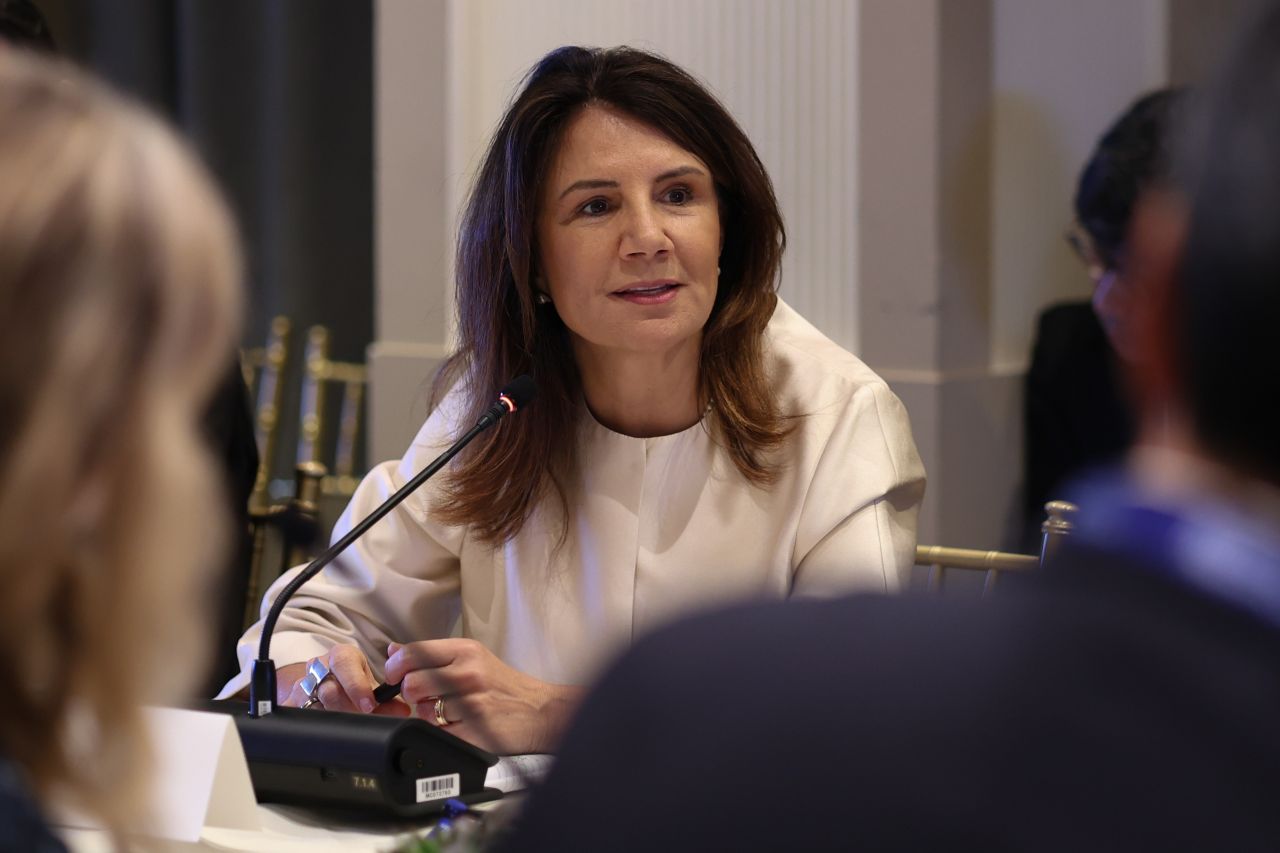COP30 calls on accelerated action to cut methane emissions from fossil fuels
Today, during a dialogue dedicated to methane reduction at New York Climate Week, COP CEO Ana Toni called on the acceleration of methane reduction as crucial to slowing the pace and scale of global warming, highlighting its outsized global warming potential

By Rafaela Ferreira / COP30
Participating in a High-Level Solutions Dialogue held on Wednesday, September 24, during Climate Week in New York, COP30 CEO Ana Toni emphasized that focusing on reducing methane emissions in the fossil fuel sector is essential to lowering the pace and scale of global warming. She assured that the topic will be at the center of discussions during the COP30 in Belém, Brazil in November.
According to Ana Toni, addressing this issue is imperative to keeping the targets of the Paris Agreement in sight, aiming to limit the rise in global temperature. “If we breach the 1.5°C warming limit, methane reduction, in the short term, can make a big difference in how we can narrow that gap,” she assessed.
The CEO also stressed that accelerating methane reduction is part of the conference’s Action Agenda. “Methane has been responsible for about 30% of the greenhouse effect. Therefore, we must focus on it, and our efforts can help mitigate emissions quickly. We truly expect COP30 to be a major platform to discuss the issue and put the focus on methane. This is one of our main action agendas,” she highlighted.
Present at the event, the UN Secretary-General’s Special Envoy for Climate Ambition and Solutions and Founder of Bloomberg L.P. and Bloomberg Philanthropies, Michael Bloomberg, emphasized that reducing methane emissions is the best opportunity to move quickly against climate change and its effects. He cited one of the essential measures to make this possible. “Methane emissions are a primary driver of climate change, and reducing them are one of our best opportunities we have to make fast progress. We can do simply by fixing leaking gas wells. Technology is giving us new tools to find and address those leaks, including new satellites that Bloomberg Philanthropies has supported”, he highlighted.
He warned that reducing methane emissions depends on cross-sectoral actions. “The more that governments, businesses, and foundations work together, the better we can harness the potential these new tools to slow climate change and lessen the destruction it’s bringing to communities around the world”, he added.
The Solutions Dialogue attended by the COP30 CEO this morning, “Accelerating Methane Reductions from Fossil Fuels: How Data and Market Levers Can Drive Action,” also aimed to enable a discussion on policies and regulations. It served as a space to identify priority actions for COP30’s Climate Action Agenda on reducing non-CO₂ pollutants and to define the next steps leading up to the conference in Belém.
The debate was convened by the United Nations Environment Programme, Bloomberg Philanthropies, and the UN Secretary-General’s Climate Action Team.
Methane Emissions
According to the United Nations Environment Programme (UNEP), methane currently accounts for about one-third of the global warming caused by humanity. Therefore, reducing methane emissions is one of the fastest and most cost-effective ways to limit peak warming in the short term. The production and use of fossil fuels are responsible for about one-third of global methane emissions, most of which can be reduced with readily available, low-cost solutions, according to the UN agency.
Progress remains limited so far, with annual methane emissions from fossil fuels staying near 120 million tons, according to the program. However, UNEP assesses that momentum to reverse this scenario is growing through the Global Methane Pledge, national policy roadmaps and inclusions in NDCs 3.0, efforts through the Climate and Clean Air Coalition, and corporate commitments through the Oil and Gas Decarbonization Charter and UNEP’s OGMP 2.0, as well as through technological advances in detection and mitigation.
